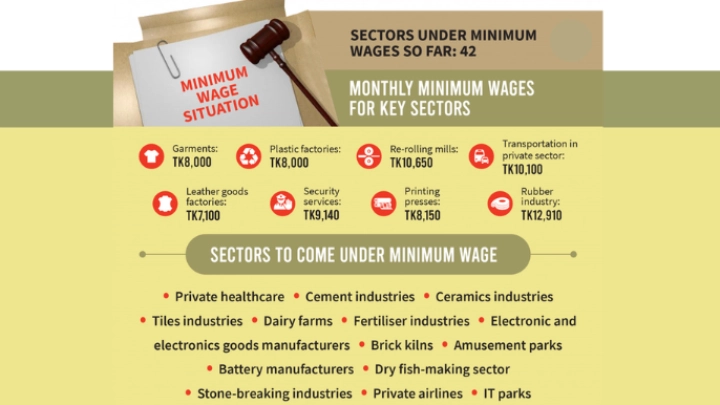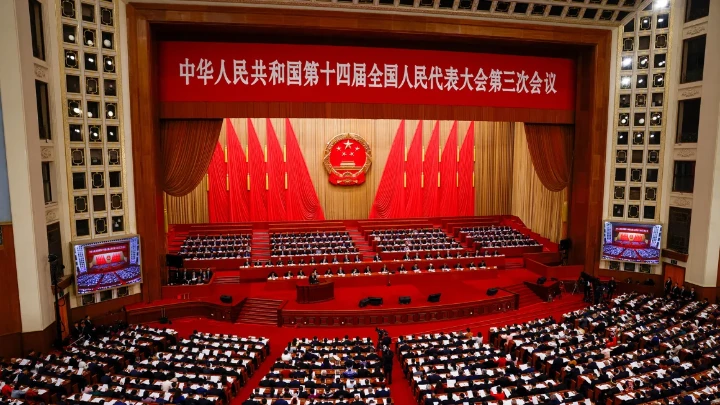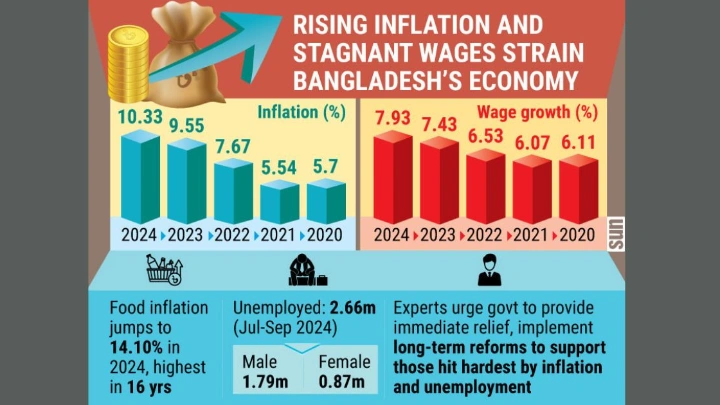13 other industries, including private healthcare, will have a minimum wage.
TBS || Shining BD
In an effort to maintain order and sustainability in the labor-intensive industries, the government has moved to implement minimum wages for 14 new sectors, including private healthcare and cement manufacturing.
Other industries include those producing ceramics, tiles, dairy farms, fertilizer, electronic and electronic goods, brick kilns, amusement parks, battery manufacturing, dry fish manufacturing, stone-breaking, privately owned airlines, and IT parks.
According to officials with knowledge of the situation who spoke to The Business Standard, the Ministry of Labour decided to set minimum wages after taking into account the development of these sectors, the workers involved, and the financial situation. They added that the Bangladesh Minimum Wages Board, the only statutory wage-fixing authority, has been asked to take the necessary actions as soon as possible.
Concerned businesses and employers' federations have also been informed of the change, they continued.
"The sectors have already grown big with huge employment. In the upcoming days, we anticipate that they will continue to grow. According to Md. Towfiqul Arif, additional secretary for the labour ministry, the choice to set minimum wages for them was made after taking into account the overall situation.
According to him, "work on setting minimum wages for six sectors is already well under way, and work on setting minimum wages for the others is in progress." he told The Business Standard.
In Bangladesh, minimum wages are mandated in 42 different industries. For instance, the minimum wage for garment workers is Tk8,000 ($94) per month, while the wage for employees of re-rolling mills is Tk10,650.
According to Raisa Afroz, secretary of the Minimum Wages Board, "we form separate wage boards for separate sectors where representatives of the sector owners' association and workers' unions are included." She added that such boards have already been established for the ceramic and cement sectors.
"The labor department's representatives for other boards have not yet been decided upon. Stakeholders will be contacted after it is finished, she added.
"There are approximately 11,000 local and international facilities in the private healthcare sector, which includes hospitals, clinics, and diagnostic centers. There are many employees there, but there is no discipline regarding pay and benefits because there is no unified policy, according to a senior ministry official who wished to remain anonymous.
Because of this, some workers receive higher benefits while others are denied them. Since there is no association or workers' trade body, the discrimination is not known to the general public.
He claimed that similar conditions exist in the ceramics, cement, electric and electronic, dairy farming, brick kiln, and other industries, noting that the new initiative has been implemented to end discrimination and enforce discipline in these fields.
"A minimum wage framework will be gradually implemented across all industries. In addition, the government is considering the creation of a unified policy rather than announcing different wages for various industries, the official continued.
Speaking to The Business Standard, some industries supported the government initiative while others were against it at the moment.
According to Sankar Kumar Roy, executive director of the Bangladesh Cement Manufacturers Association, "three of our industry representatives from multinational, Dhaka and Chattogram-based factories have been included in the board which will determine minimum wages for our sector."
He noted that although the nation now has about 70 cement factories, only 30 to 35 are actually in regular operation. "We urge the government to finalize wages after reviewing all the issues and protect the interests of both workers and employers," he said.
There should be a minimum wage in every industry, but now is not the appropriate time, according to Mir Ceramics' managing director Mir Nasir Hossain. "The crisis we are facing now has many facets. We are fighting for our lives due to a shortage of gas, rising electricity and other raw material prices, and the dollar crisis.Banks have also raised commissions and LC margins. Any increase in pay at this point would put more pressure on us, he told TBS, noting that workers in the ceramics industry are typically well compensated. "There is no unhappiness here. In comparison to other sectors, this one pays skilled laborers more money.
Since their inception, the country's ceramic industries, which are thought to be an older industry, have operated without a recognized wage structure. The industry currently employs about 55,000 people and exports goods to various nations.
Despite the fact that 42 industries fall under the minimum wage, only issues pertaining to the clothing industry are frequently discussed due to their collective strength in the form of active trade unions. Workers in all industries, according to experts, should be aware of their rights regarding wages.
"It's great that the government is establishing minimum wages. To ensure that workers can afford food, education, health care, nutrition, transportation, leisure activities, and a minimal amount of savings, wages should instead be realistic and practical, according to Khandkar Golam Moazzem, director of research at the Centre for Policy Dialogue.
"Wages ought to be set at a rate that is higher than the federal poverty level. ILO regulations should be followed in this situation, he told TBS.
Shining BD























